Owning and controlling your own data gives you significant power. As the ownership of apps and online services becomes more centralized, it’s understandable if you’re considering your options for storing your personal data and tracking your daily activities.
The good news is that not all services are intent on monetizing your private information. Many alternatives are just as effective, if not superior, to their commercial or ad-supported counterparts.
Take a moment to think about what you’d like to leave behind—corporations hoarding your data, subscription fees, intrusive ads, or even government surveillance? Your specific needs and risks may differ, but these suggestions might help you make the right choice.
Wallabag – Save Stories to Read Later
If you’ve ever come across an interesting article, news story, or any content you’d like to read later, Wallabag is the perfect tool for you. This read-later web archiving service might not have the same name recognition as its main competitor, Pocket, but Wallabag is a robust alternative with features that rival those of commercial options. You can save articles to read at your convenience, hosting Wallabag on your own network-attached storage (NAS) server at home, or opt for an affordable cloud-hosted plan.
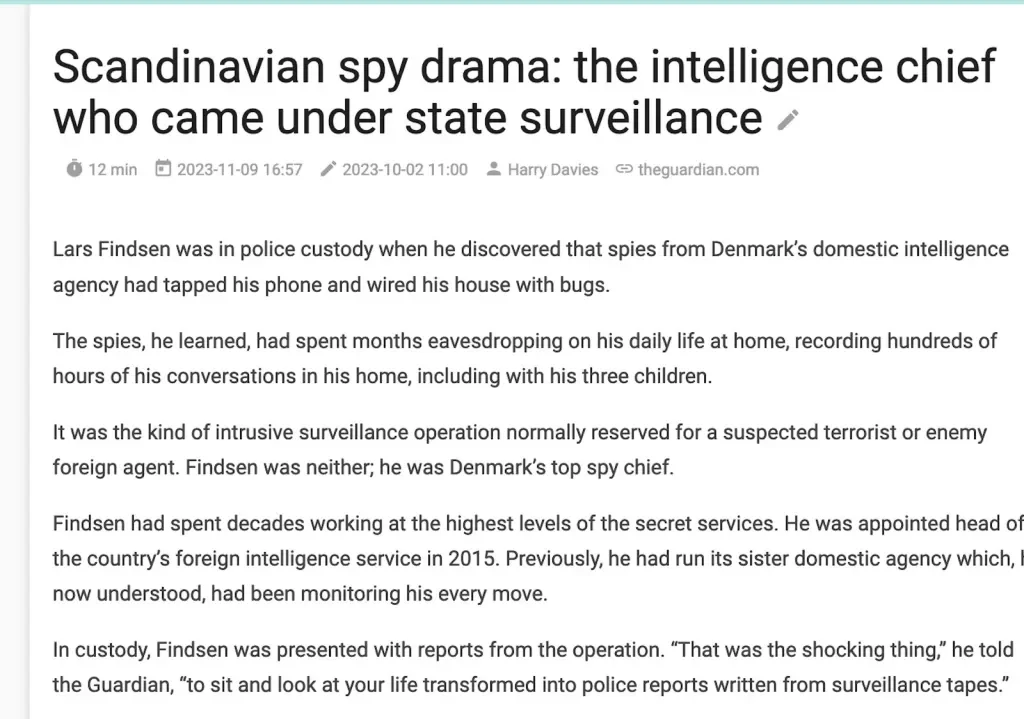
Why is this important? Many read-later apps track your usage to identify trends and recommend content, often including sponsored suggestions. Some users are fine with this, but others may not be.
Signal – The Encrypted Messaging App You Should Use
Signal is widely regarded as one of the most secure messaging apps, and for good reason: it’s built to know nothing about you. Signal regularly demonstrates its commitment to privacy by publishing any search warrants it receives, highlighting that it can’t provide data to authorities because it doesn’t store it. Experts in cryptography have referred to Signal’s security as the “gold standard” for messaging apps. While Signal is free to use and download, it operates as a nonprofit and is supported by donations.
Why should you care? Signal doesn’t just protect the content of your messages and calls from being intercepted. It also encrypts data about your communications—who you contact, when, and how—providing crucial privacy for aspects of your life that could be just as revealing as the messages themselves.
Nextcloud – A Self-Hosted Alternative to Dropbox
Nextcloud offers a secure alternative to Dropbox, providing all the essential features for file storage, document editing, and sharing. One of its standout advantages is that you can host your own server at home for free, keeping your data private and fully under your control. Alternatively, you can opt for a specialized hosting provider to manage the server for you.
Built with security in mind, Nextcloud ensures end-to-end encrypted access to your files, whether you’re using your phone or another device. If you’re looking for a self-hosted solution to back up your most sensitive and personal files, Nextcloud is an excellent choice.
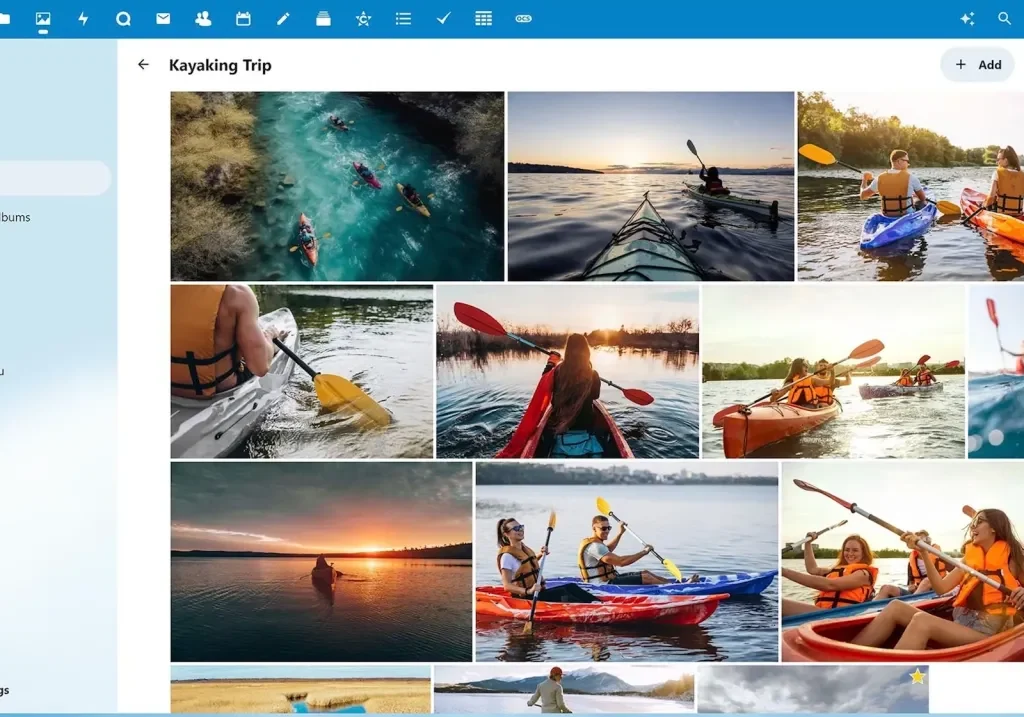
Why is this important? While cloud storage services can be secure, the companies behind them are often required to comply with law enforcement and may even scan your files (usually for valid reasons). This could lead to sudden bans or account suspensions. Hosting your own server doesn’t make you immune to law enforcement action, but it does give you more control and transparency should an issue arise.
Never Forget Your Passwords Again with Bitwarden
Password managers are a wise investment for personal security, as they securely store your passwords, passkeys, credit card details, and other sensitive information, eliminating the need to remember them all. Bitwarden is a popular open-source password manager that lets you quickly log in to your favorite websites, auto-fill payment details, and more. You can access Bitwarden from any device, including your phone. It’s free to use, with affordable options for additional features.
Why is this important? The security of password managers improves with more eyes on their source code. While many password managers are secure, open-source systems like Bitwarden are especially valuable because they are fully auditable and transparent about their development process.
Joplin and Notesnook – Keep Your Notes and Scribbles Encrypted
If you’re looking to move away from Google Docs or Microsoft 365, there are numerous note-taking apps that store your thoughts, notes, and drafts in a secure, accessible way. Joplin is a popular document and productivity app that organizes and encrypts your files, storing them in open formats like Markdown so you can easily migrate them to other platforms. Notesnook is another great option, offering end-to-end encryption so that your notes remain private. Unlike Google Docs, no one else can read your files with these apps.
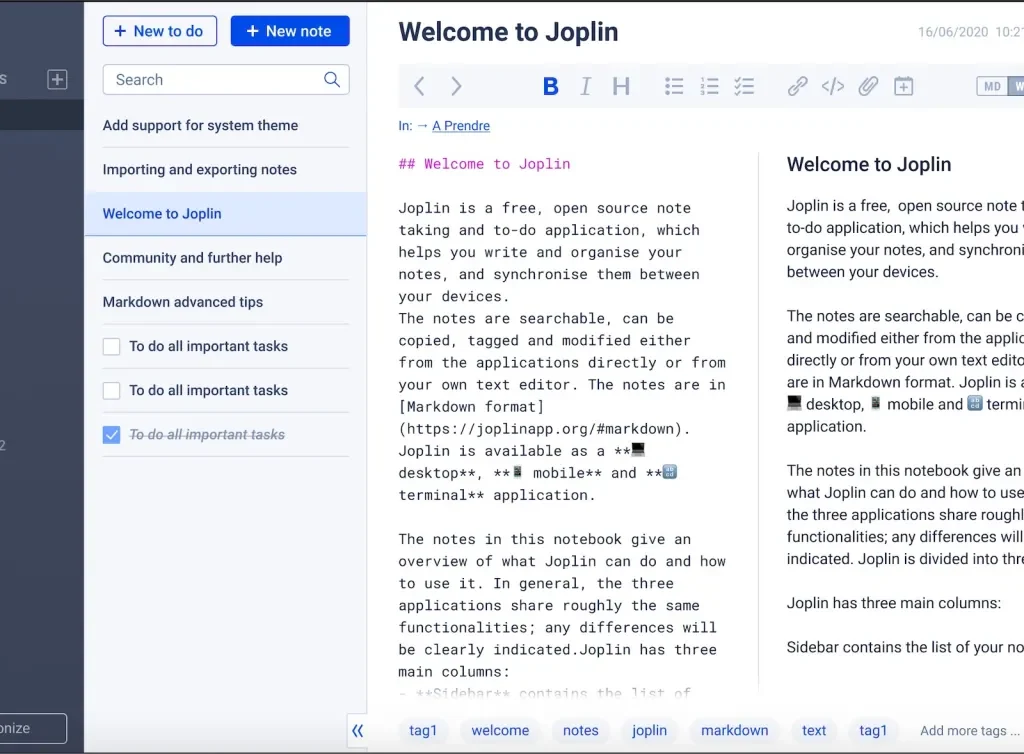
For anyone seeking a downloadable, offline office suite that isn’t from Microsoft, LibreOffice is the top alternative available. It’s private by design, free to use (though the macOS app in the Mac App Store has a price), and supports all the common file formats you regularly work with.
Why is this important? Large companies like Google and Microsoft are increasingly integrating their services, often exposing your notes, emails, and files to their AI systems. While this can be useful, if you prefer a simpler, cross-platform text-syncing app that doesn’t involve invasive data analysis, there are many alternatives that respect your privacy.
Ente – An Encrypted Vault for Your Photos
If you’re looking to leave behind Apple Photos, Google Photos, or services like Flickr and YouTube, Ente.io offers a privacy-focused alternative. It’s designed to securely back up your photos and videos to the cloud, encrypting your data with a password only you know. Your memories are stored in multiple locations worldwide for extra protection. Ente also provides all the necessary photo management and sharing features. The basic version is free, and additional storage is available at a reasonable price.
Why is this important? Like documents and notes, photos are often targeted by AI systems. While auto-tagging people might seem helpful, it should be opt-in, not automatic. You shouldn’t have to worry about a machine learning model scanning every face in your photos without your consent. Ente offers a more private option with greater control over your data.
Home Assistant – The Hub for All Your Smart Devices
For anyone who has ventured into smart home technology, Home Assistant is the ultimate hub to manage your devices. This open-source server connects thousands of smart home products, from voice assistants to light bulbs and robot vacuums, allowing you to control them all from a single platform, whether through your browser or a mobile app. Just like Apple Home or Google Home, you can automate your smart devices, but with the added benefit of full control and privacy.
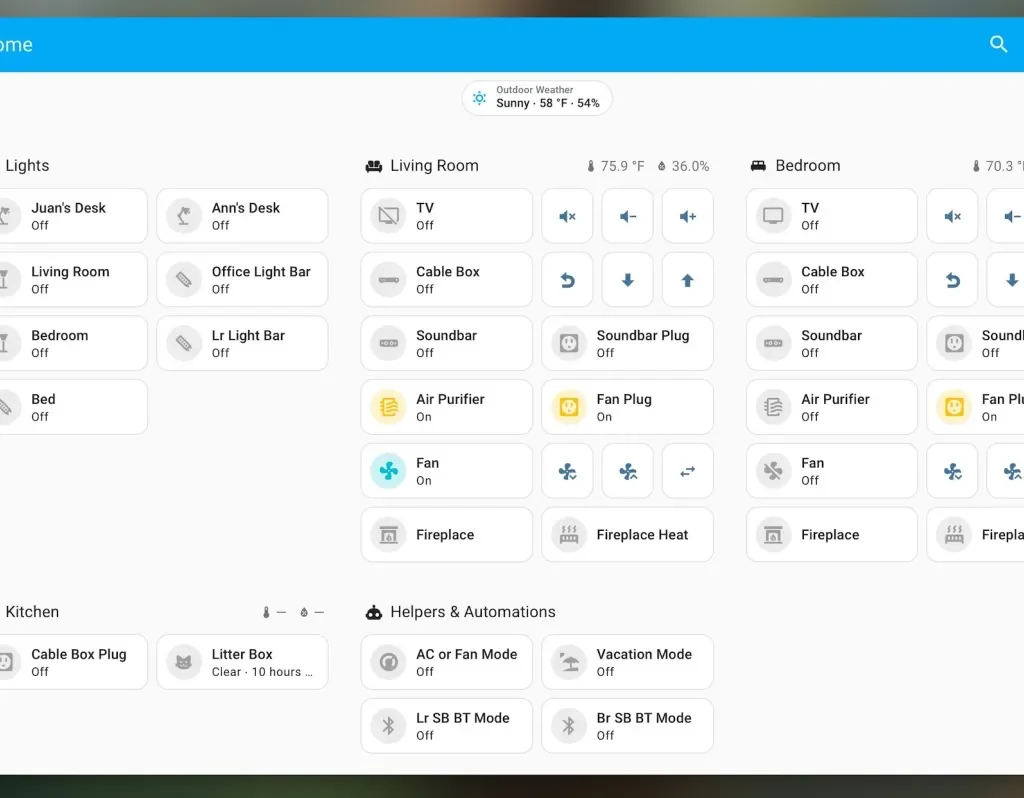
Home Assistant is built to run locally, allowing you to host it on a variety of devices, whether it’s a home server tucked away in a closet or any device that’s always on, such as a desktop computer. For those who need remote access, Home Assistant offers a cloud-based subscription service to securely connect from outside your home.
Why is this important? Not all smart home companies last forever, and sudden closures or bankruptcies can leave customers without access to their devices. With Home Assistant, you can keep control of your smart home tech, ensuring you don’t have to rely on a company’s fate or face expensive replacements if things go wrong.
Open Scanner: A Simple and Efficient Document-Scanning App
Document scanning doesn’t need to be complex or overwhelming. Open Scanner is a straightforward, easy-to-use document-scanning app for iPhones, with its code freely available online. It’s a refreshing departure from the bloatware often found in profit-driven apps, which tend to overload users with unnecessary features and AI gimmicks. Open Scanner allows you to quickly scan receipts, notes, textbooks, or virtually any document you point your phone at. Android users can also benefit from OSS Document Scanner, a similarly simple, open-source, and free app for scanning documents.
Why is this important? Unless you require professional-grade scanning, your smartphone is more than capable—often outperforming many budget scanners. Skip the hassle of purchasing specialized hardware and opt for a simple, free solution instead.
Aggregate Your News with FreshRSS
RSS is a fantastic web technology that enables you to subscribe to updates from your favorite websites, blogs, and news sources. Many news sites, like TechCrunch, offer RSS feeds, allowing you to receive the latest headlines in RSS-compatible apps, known as readers. There are plenty of RSS readers to choose from, but FreshRSS has stood out for over a decade as one of the most feature-rich yet simple-to-use options. You can self-host it or deploy it to a private server with a specialized cloud host. Once you’ve subscribed to your preferred feeds, you’ll have a constantly updating digital newspaper at your fingertips.
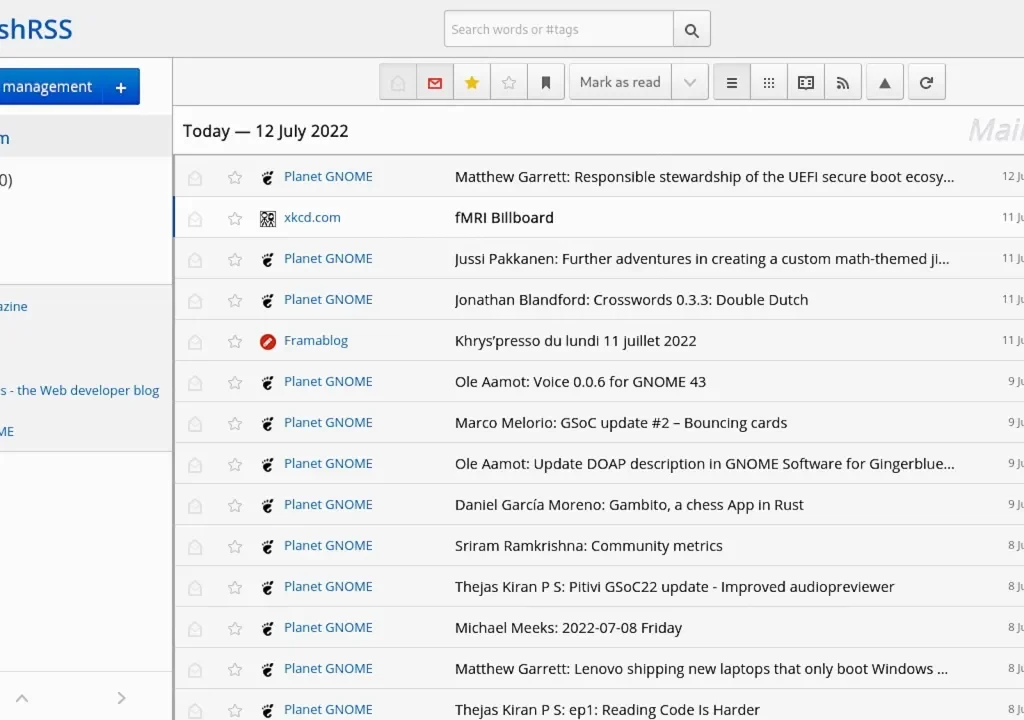
Why It Matters: You’d be amazed at how different the news experience is when you see it through your own RSS setup. By managing your own feed, you can avoid the sponsored content and tracking often found on hosted services, similar to read-it-later apps.
Own Your Livestreams with Owncast
For anyone streaming their own shows, gameplay, or anything in between, Owncast is a self-hosted solution that lets you easily set up and manage livestreams. It’s a popular choice due to being free, user-friendly, and compatible with your existing livestreaming equipment. If you haven’t considered livestreaming yet, this is a great way to dip your toes into the world of broadcasting.
Why It Matters: While platforms like Twitch are well-established, you might prefer not to depend entirely on a corporate giant (like Amazon) for your creative process. Owncast and other open-source streaming apps offer a great alternative, allowing you to control your content while possibly reaching a new audience.
Stirling PDF: Your All-in-One PDF Editing Tool
Editing and managing PDFs has often been a hassle. For those who don’t want to invest in Adobe’s software or rely on questionable file conversion websites, Stirling PDF offers a versatile solution. It lets you convert, edit, merge, split, sign, and more—all without compromising your privacy or uploading your files to the cloud. If you handle sensitive documents, Stirling PDF even allows you to self-host, ensuring complete control over your files.
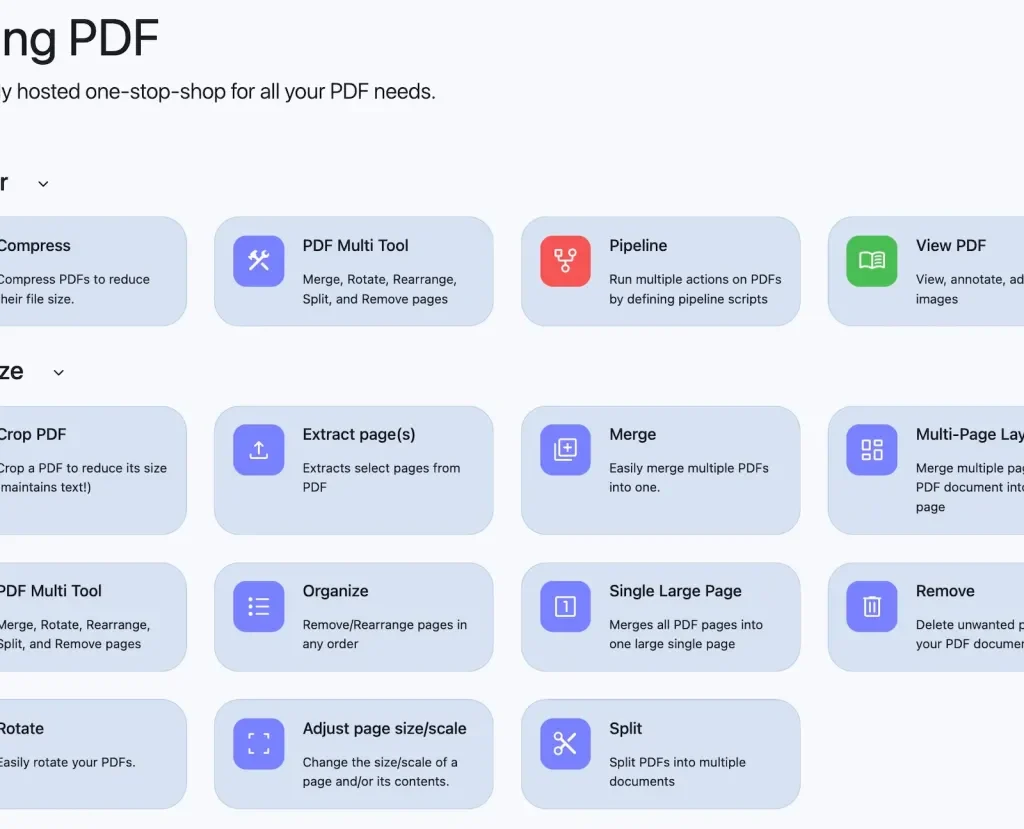
Why does this matter? Frankly, any time there’s a realistic alternative to Adobe, take it.

